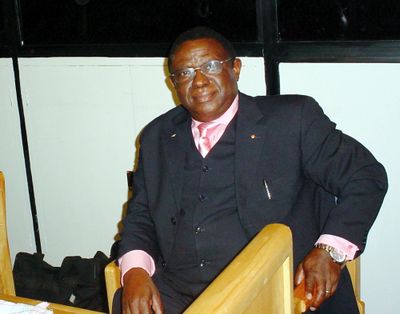Ex-colonel found guilty of genocide
U.N. tribunal rejects conspiracy charge

NAIROBI, Kenya – The ringleader of the 1994 Rwanda genocide was sentenced Thursday to life in prison for his role in the early days of an ethnic slaughter that eventually killed an estimated 800,000 people.
Theoneste Bagosora, 67, was the highest-ranking military officer convicted at the U.N. International Criminal Tribunal for Rwanda. The former colonel’s prosecution was viewed as a significant step in efforts to punish war crimes.
“This victory sends a message to people like the warlords in Darfur or those committing horrendous rapes and killing in Congo,” said Barbara Mulvaney, a Southern California attorney who served as chief prosecutor. “Every time one of these guys goes down, the message is: Sooner or later you are going to be held accountable.”
Judges found that Bagosora, as cabinet director of the Defense Ministry, was culpable in the deaths of former Rwandan Prime Minister Agathe Uwilingiyimana, four opposition leaders and 10 Belgian peacekeepers. He was also convicted of overseeing four days of deadly rampages around the country.
But judges rejected allegations that Bagosora and others plotted as early as 1990 to prepare for the genocide. Tribunal officials had charged Bagosora with “conspiracy to commit genocide,” hoping a conviction on that charge would refute those who still deny genocide occurred and claim the violence was a spontaneous eruption of ethnic hostility.
The judges affirmed that genocide took place but ruled that evidence was insufficient to prove Bagosora and others conspired to commit the mass killings.
The 100-day massacre began in April 1994 and pitted Hutu extremists against Tutsi and Hutu moderates. Incited by hate messages on radio and armed by government officials, ordinary Rwandans carried out much of the killing with machetes.